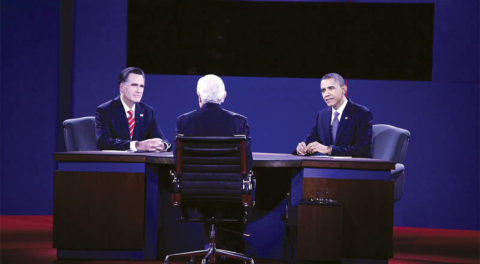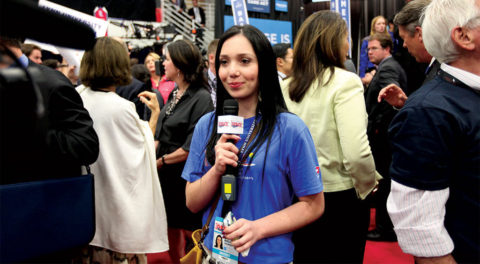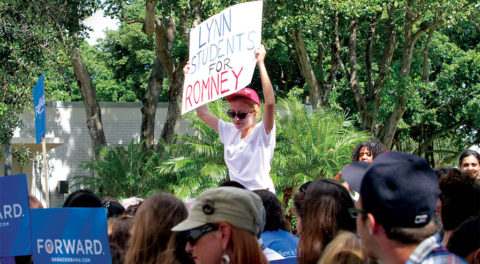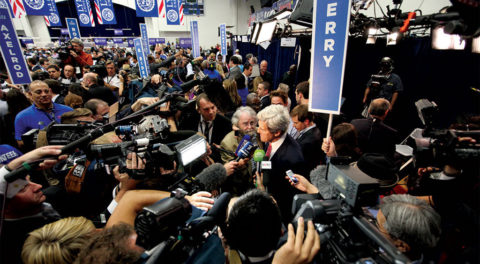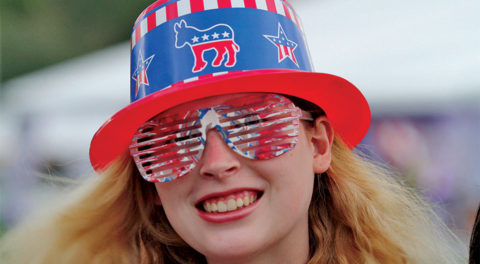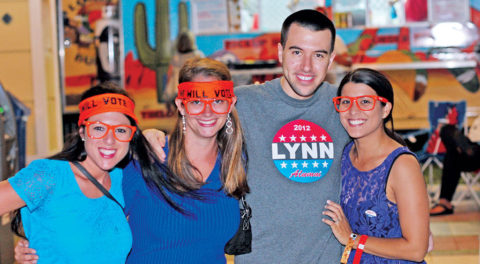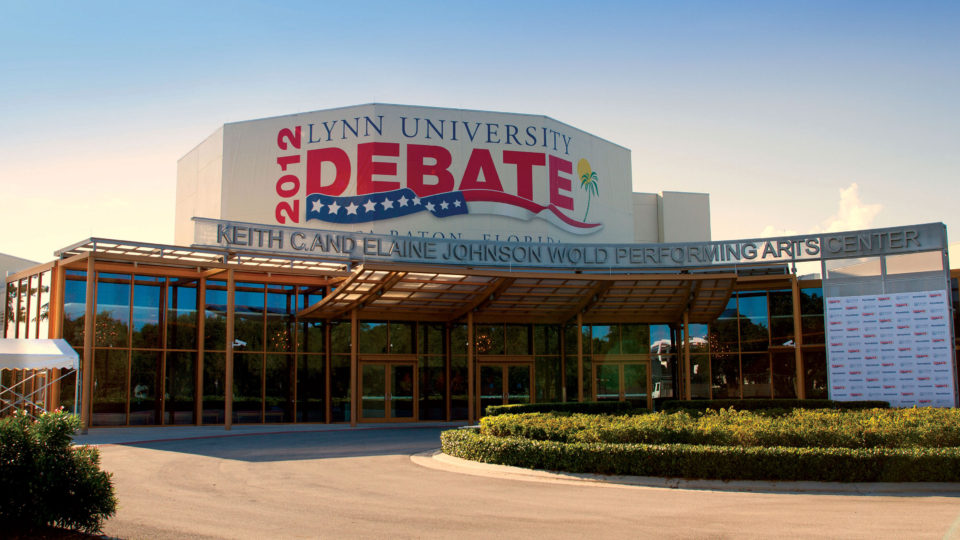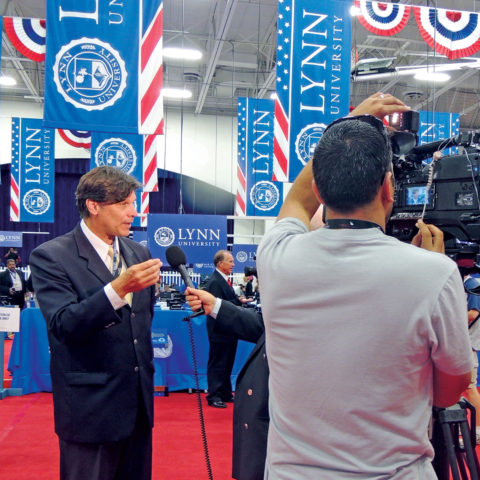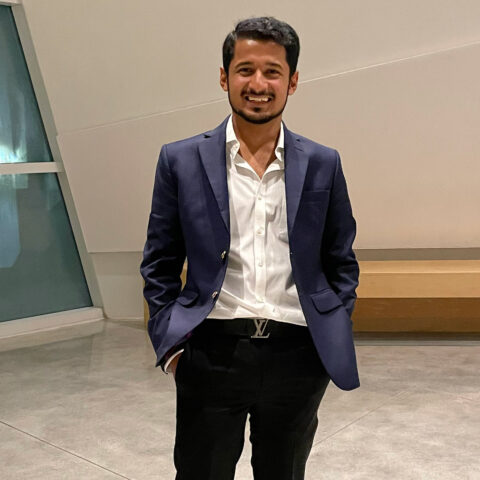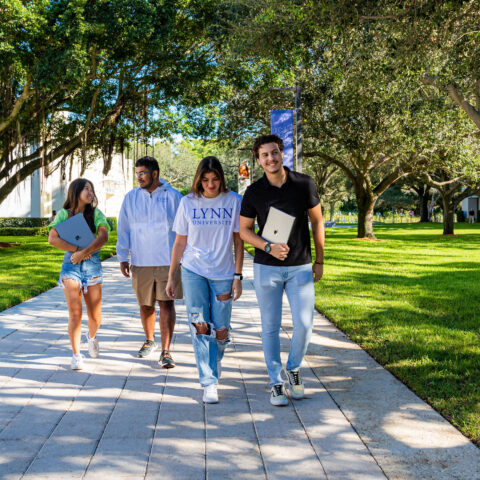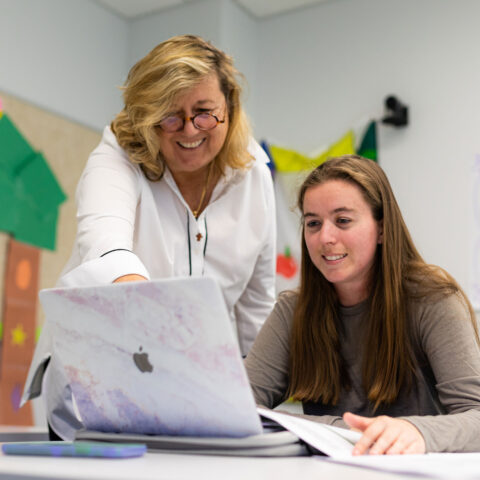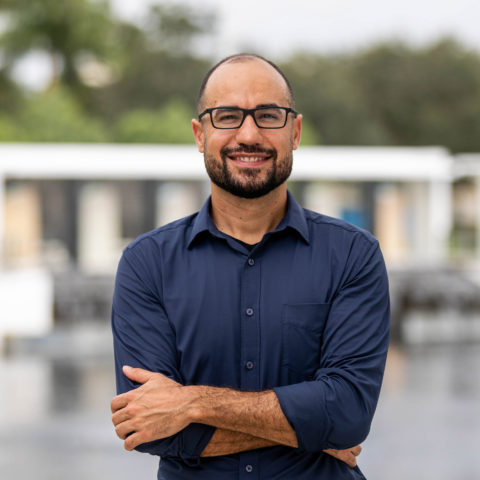There’s not a word about hosting a presidential debate in Lynn 2020—or the iPad-powered learning it paved the way for. But, as the strategic plan advised, Lynn’s leaders did recognize an unparalleled opportunity to educate students, engage employees and the community, and improve the campus.
And so, Lynn submitted its application to the Commission on Presidential Debates (CPD). The new 750-seat Keith C. and Elaine Johnson Wold Performing Arts Center and an ideally situated campus made Lynn a top contender. But most of all, as President Kevin M. Ross has said, “it was the collective will of everybody to get it done.”
On Oct. 21, 2011, the CPD sent Lynn good news: Lynn would host the third and final presidential debate on foreign policy between incumbent President Barack Obama and former Massachusetts Governor Mitt Romney. It was a win-win. Hosting the final debate in a hotly contested election assured high viewership, and foreign policy was a perfect theme for a university with students from 100 nations.
Lynn had a year to prepare and immediately went to work, building two new entrances and parking, moving the campus nature preserve, configuring the Wold Center to the commission’s exact specifications, transforming the gym into a media filing center, and creating an independent power system, candidates’ dressing rooms, and dining and catering spaces.
IT put into place essential technology, including a wireless network to support 3,000 to 5,000 additional users, a separate data center and a 1,300-line telephone system. The upgrades were critical for Lynn’s future iPad initiative to launch in August 2013.
Campuswide, employees collaborated on election-themed events, a presidential history library exhibit, transportation services, volunteer coordination and credentialing.
Faculty masterminded the educational component, tailoring more than 100 Lynn classes to the debate. “Our classes were completely debate-focused,” said Kevin Studer ’15, ’16, today an adjunct professor in the College of Communication and Design. “Our professors used their class time to educate us about the candidates. As a first-time voter, it was incredible being able to walk into the polls and know exactly what each candidate stood for and against.”
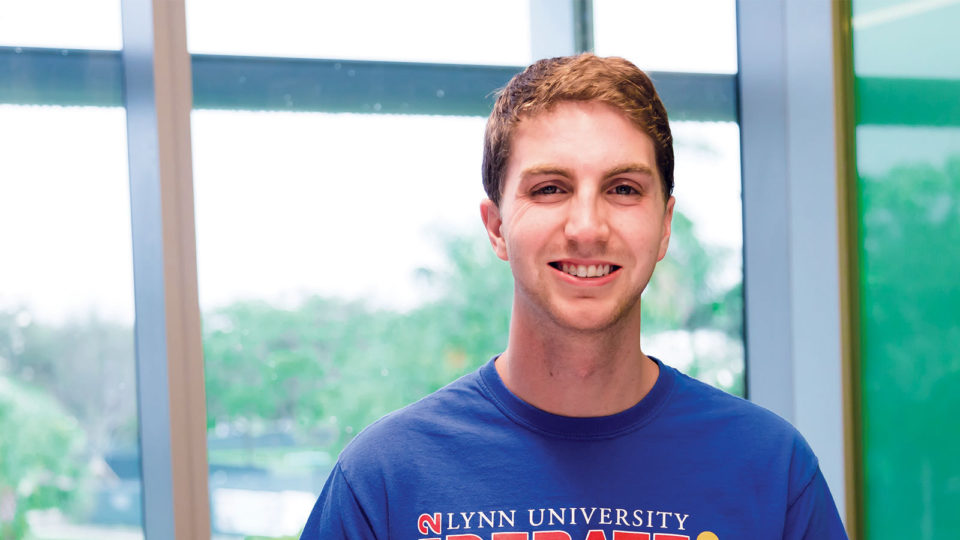
Faculty also created a K–12 debate curriculum available for download, and several of them, including the College of Arts and Sciences’ Dr. Robert Watson and Dr. Marcheta Wright, were regularly interviewed by media.
“I spoke to dozens of journalists and politicians from across the country,” said Watson, professor of American studies. “Many of them commented to me that they had been to several presidential debates, but the Lynn debate was, by far, the best-run. They felt that the people at Lynn were the friendliest, most accommodating debate hosts.”
Students also did their part, serving as volunteers assisting the CPD. Studer said, “I worked events, worked with the press and even changed the debate countdown signs nightly.”
When the big day came, Lynn was ready. More than 59 million people worldwide watched the debate on TV—numbers that call to mind a famous annual football game.
“Hosting a presidential debate is like hosting the Super Bowl,” Watson said. “The debate put Lynn on the international stage and gave us a chance to show the world that this campus is a special place. But I think the real highlight of the debate was that Lynn students had a front-row seat to history in the making.”
And some had actual seats—Studer among them. “I was one of the lucky few to win a ticket into the debate hall,” he said. “Being only two and a half months into school and sitting in the same room as the president and the man who could’ve been the next president was an experience I’ll never forget. I still smile with pride when I say I was part of something so incredible.”
Lynn debate: by the numbers
